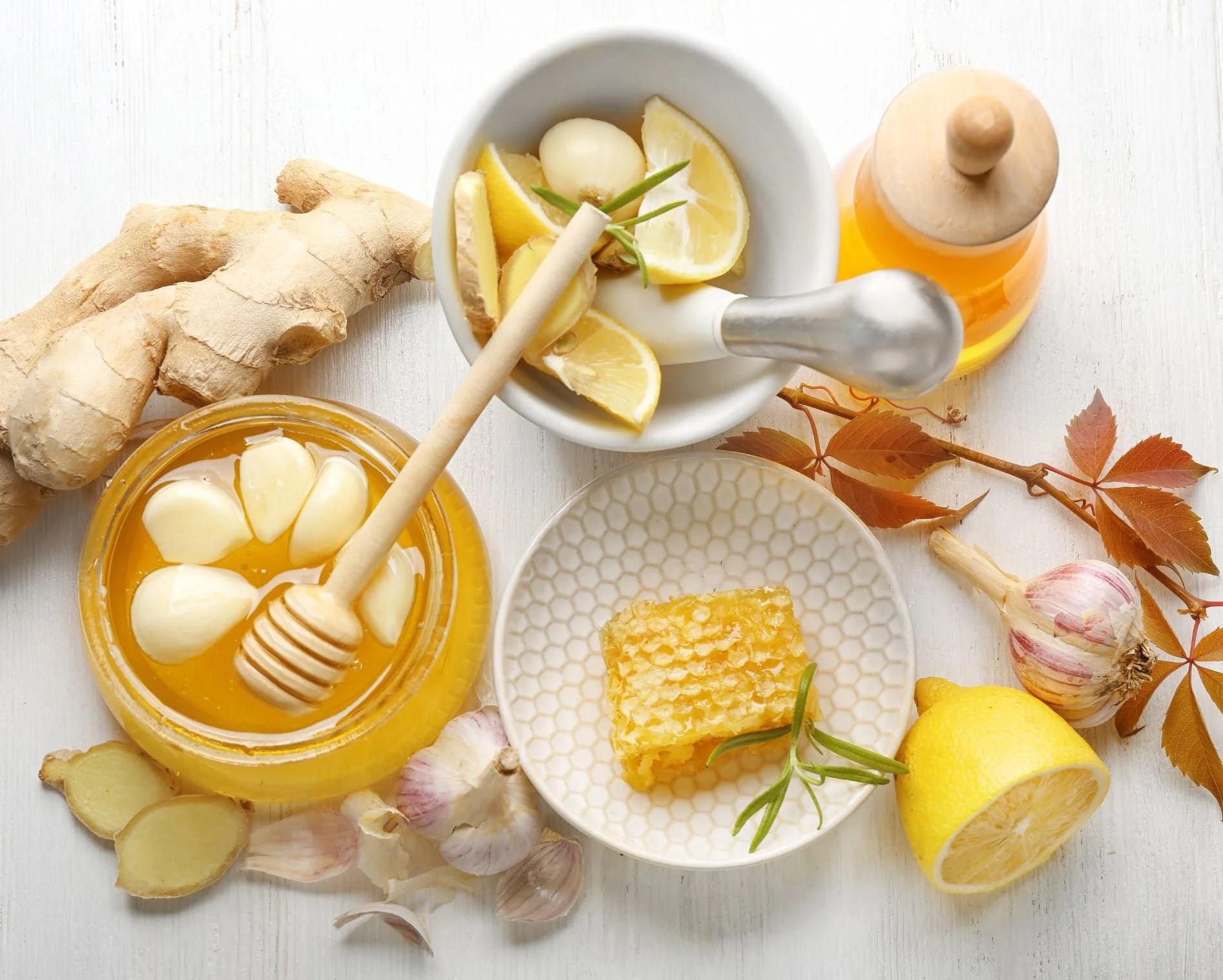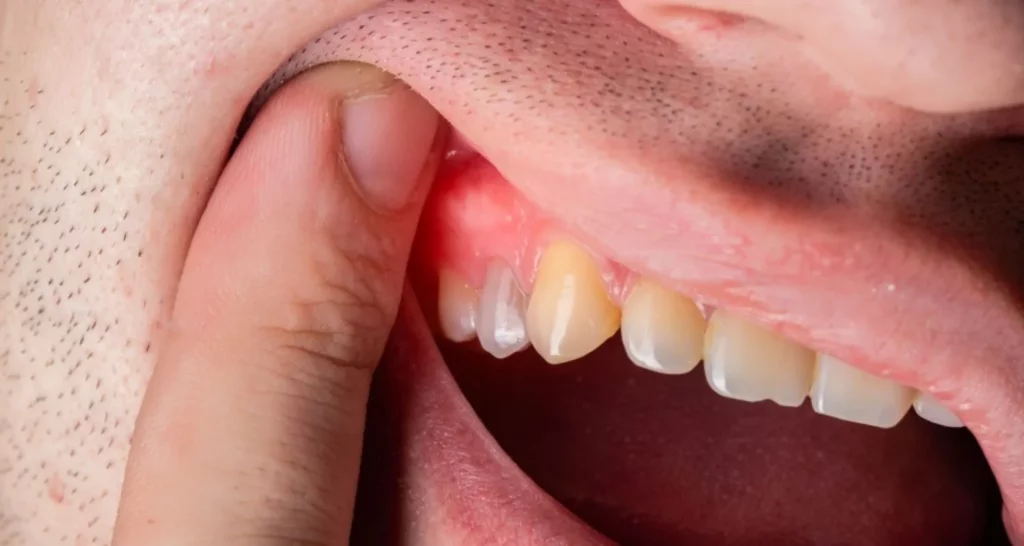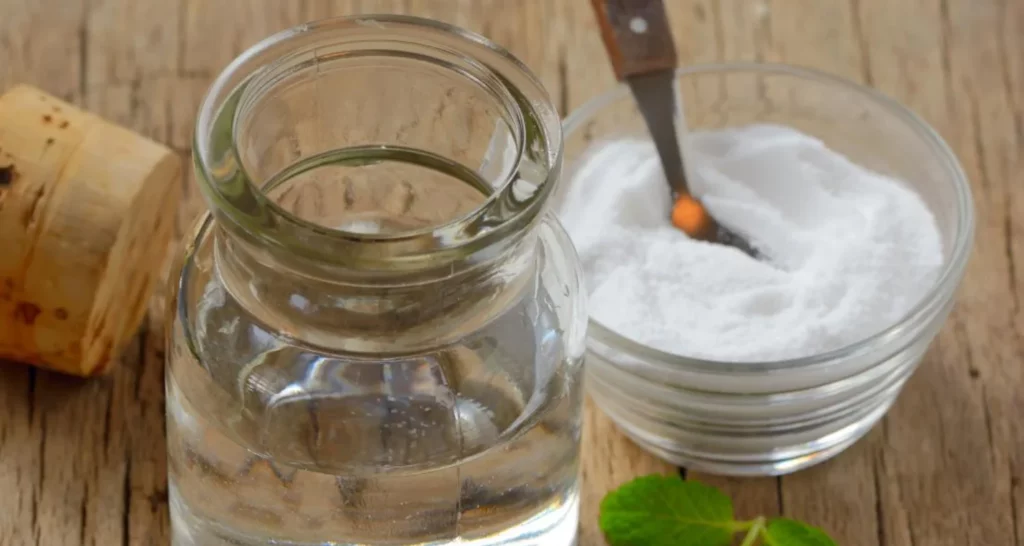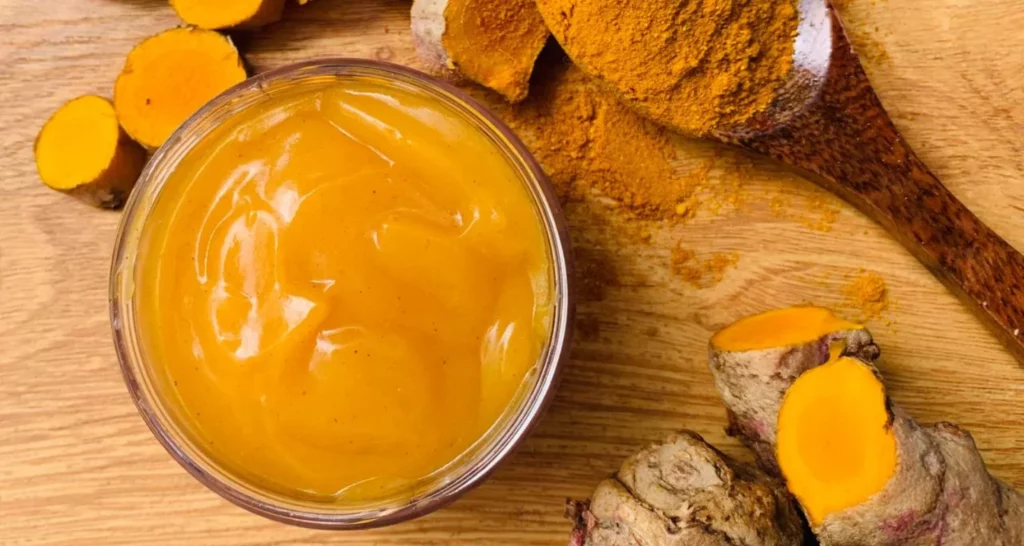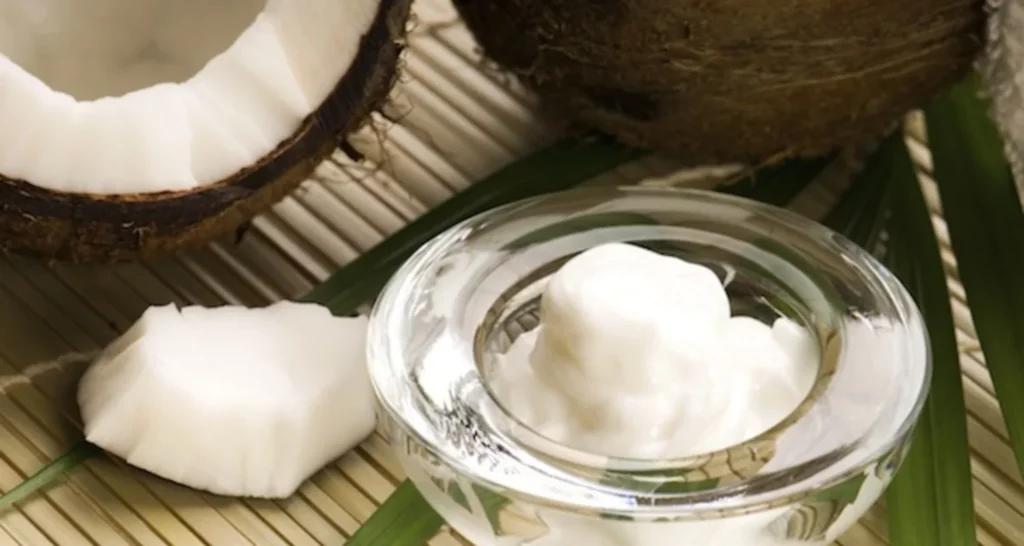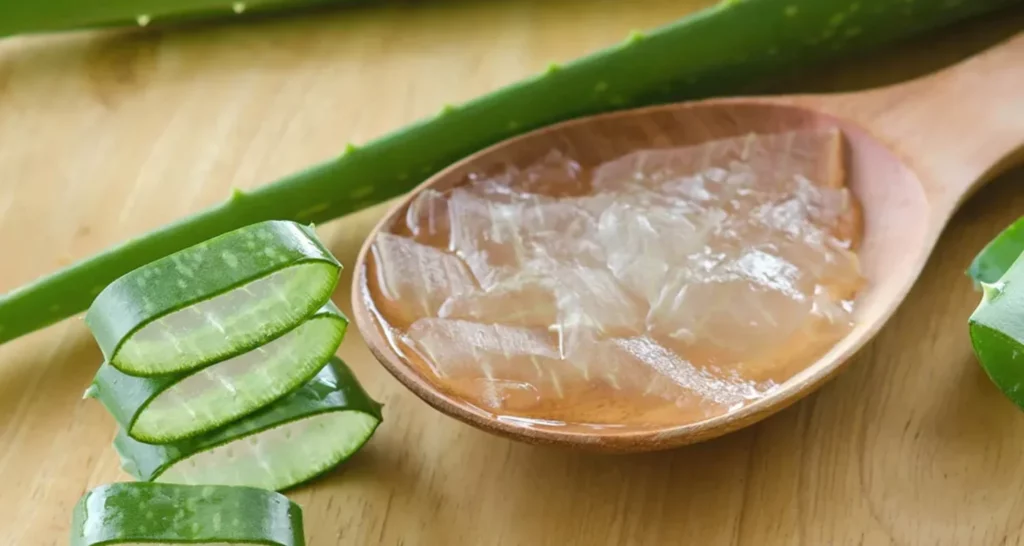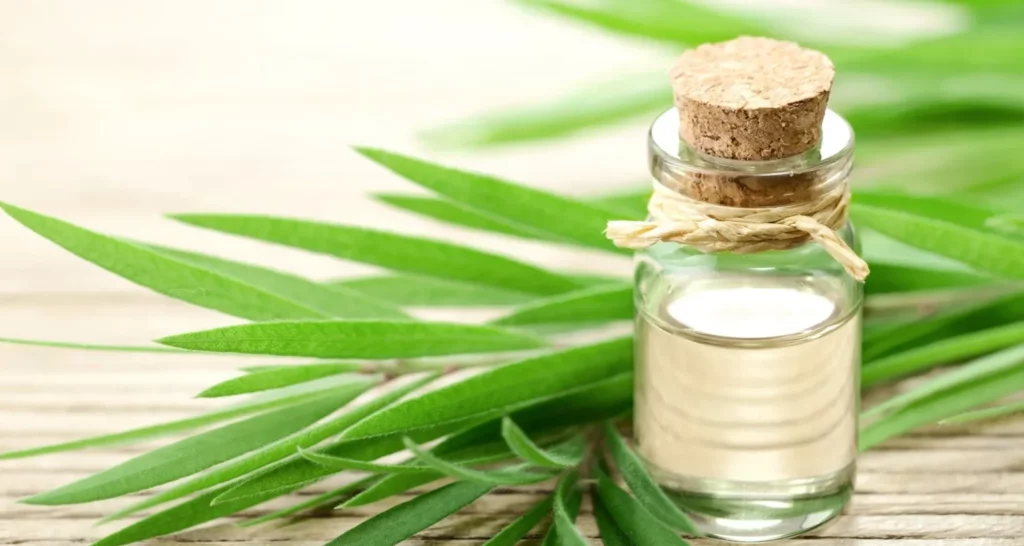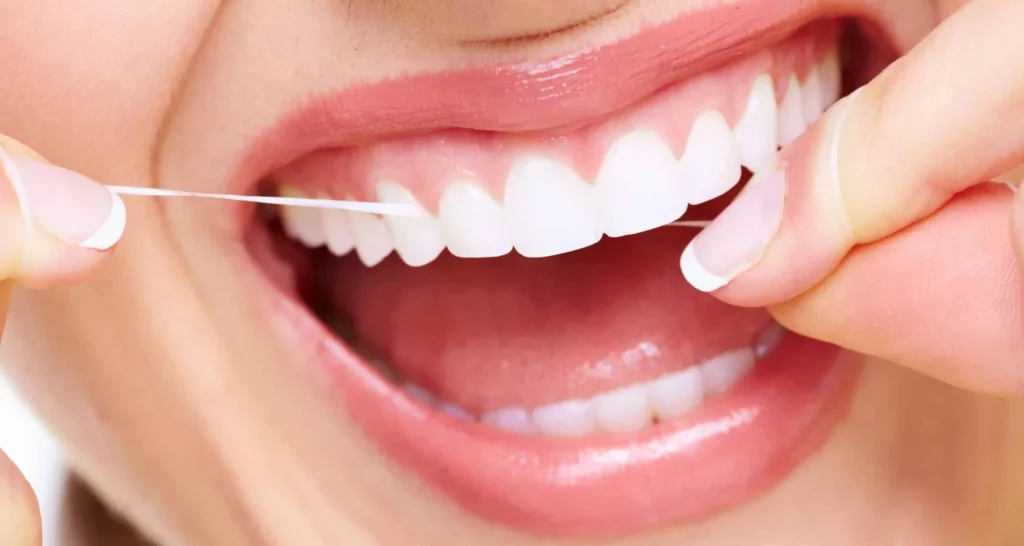Last Updated on: 13th December 2025, 05:50 am
In this timely article, you will discover 5 proven Diy Remedies For Gum Inflammation. They are all natural solutions for healthier gums, featuring key ingredients. Try our easy tips today!
Ever encountered unexpected bleeding while brushing or flossing? Watch out as it could be a sign of gum inflammation!
DIY Remedies For Gum Inflammation
But wait, what is gum inflammation?
Gum inflammation, or gingivitis, manifests as red, swollen gums prone to bleeding during brushing. It stems from plaque buildup along the gumline that fosters bacterial growth and irritation. If left untreated, gingivitis can progress to more severe forms of gum disease, ultimately leading to tooth loss.
What Causes Gum Inflammation?
Here’s the truth: not using your toothbrush properly leads to bacterial buildup, eventually causing gum inflammation. In short, poor oral hygiene is the leading cause of gum inflammation across the globe. However, other risk factors can contribute to poor gum health, including:
● Hormonal changes
● Imbalanced diet
● Smoking
● Certain medications
● Conditions like diabetes, leukemia, HIV/AIDS compromising immunity
● Aging
● Family history
● Viral and fungal infections
The Role of Diet in Gum Health or Natural gum care
Your gingival health is greatly impacted by your dietary choices, regardless of any fancy dental products you might use. Remember, you are what you eat, so it is imperative to make the right choices. A balanced diet is essential for gum health, and certain foods like citrus fruits, poultry, fish, leafy greens, tomatoes, and dried fruits will help improve it. We suggest including these foods for better gum health, starting today!
5 DIY Remedies for Gum Inflammation
Ever thought you could curb gingivitis and maintain your gum health from the comfort of your own home? No? Well, you can. A few DIY Remedies for Gum Inflammation are:
1. Saltwater rinse
A super easy and effective remedy, a saltwater rinse, can provide significant benefits for healing inflamed gums. Salt acts as a natural disinfectant, Natural gum care, promoting quick and effective healing.
To make and use a salt water rinse:
● Add 1/2 to 3/4 teaspoon of salt to a glass of lukewarm water and mix well.
● Swish the solution in your mouth for up to 30 seconds.
● Spit out the solution.
● Repeat two to three times per day.
Note: excessive or prolonged use of a salt water rinse can harm tooth enamel due to its acidic nature, potentially leading to erosion. Use this remedy cautiously and follow the above mentioned instructions.
2. Turmeric gel
Turmeric gel, with its anti-inflammatory and antimicrobial properties, effectively prevents plaque production and gingivitis. Its active component, curcumin, helps reduce gum inflammation and heals bleeding, being a Natural gum care.
Instructions for use: Apply the gel to your gums for 10 minutes after brushing; then rinse thoroughly and repeat twice daily. Avoid this option if you are allergic to turmeric.
3. Oil pulling with coconut oil
Oil pulling, an ancient Ayurvedic technique, involves swishing oil in your mouth for 20 to 30 minutes to reduce bacteria, eliminate toxins, and enhance overall oral health. Coconut oil contains lauric acid, which has anti-inflammatory and antimicrobial properties that have been clinically proven to be effective in its use as an DIY remedies for gum inflammation.
To make and a coconut oil pull:
● Take 1 to 2 teaspoons of fractionated coconut oil (liquid at room temperature) and place it in your mouth.
● Swish the oil around your mouth for 20 to 30 minutes, ensuring it doesn’t touch the back of your throat.
● Spit out the oil after the designated time.
● Rinse your mouth with water and spit it out.
● Drink a full glass of water.
● Finally, brush your teeth.
Coconut oil pulling may offer added advantages like:
● Whitening teeth
● Preventing cavities
● Freshening breath
● Killing harmful bacteria
● Clearing sinuses
● Easing headaches and tension
Oil pulling is safe, but don’t get too excited and swallow the liquid; it may contain toxins and bacteria pulled from your mouth tissues.
4. Aloe vera
Aloe vera is an essential part of natural gum care with proven efficacy. In fact, it is at par with conventional mouth rinses such as chlorhexidine! Amazing? Unlike other mouthwashes, aloe vera extract requires no dilution. Make sure the juice is 100 percent pure before using!
To use an aloe vera mouthwash:
● Swish the juice in your mouth for 30 seconds.
● Spit out the solution.
● Repeat two to three times per day.
Purchase aloe vera from a trusted source and strictly adhere to label instructions. Avoid using it if you are allergic.
5. Tea tree oil mouthwash
Thought essential oils are just for skincare? Well, the answer is no. Essential oils, notably tea tree oil, can be used as an effective mouthwash. After being dormant in medicine for thousands of years, these oils have regained popularity in recent years for their natural sources and varied health benefits, as well as its use in natural gum care.
To use a tea tree oil mouthwash:
● Add up to 3 drops of tea tree oil to a cup of warm water.
● Swish the solution in your mouth for up to 30 seconds.
● Spit out the solution.
● Repeat two to three times per day.
You may also add a drop of tea tree oil to your toothpaste when brushing your teeth! When trying tea tree oil for the first time, use a highly diluted amount as high concentrations may cause:
● a rash
● an allergic reaction
● a mild burn
Tea tree oil can also cause interactions with certain drugs, vitamins, and herbal products. Be careful when using this essential oil, but feel free to make it part of your daily oral hygiene routine.
Reducing Gum Inflammation : Daily Practices
You can prevent gum disease with natural gum care and by following a few simple gum health tips such as:
● Floss daily: Remove plaque and food debris beyond the reach of your toothbrush effective any time of the day.
● Regular dental cleanings: Detect early gum disease symptoms with regular dental visits and professional cleaning.
● Quit smoking: a weakened immune system from smoking makes gum infections harder to fight.
● Brush twice daily: Use soft-bristled toothbrushes, consider electric one’s for better plaque control.
● Fluoride toothpaste and therapeutic mouthwash: Choose ADA-approved options to reduce plaque, gingivitis, and tartar.
When to See a Dentist for Reducing Gum inflammation?
If you notice any new, severe, or long-lasting issues with your gums, don’t hesitate to reach out to a dentist ASAP!
The following symptoms might warrant a visit:
● Bright red or purple gums
● Gums bleed easily when brushing teeth or flossing
● Foul breath that doesn’t go away
● Pain while chewing
● Constant feeling of sticking a sharp between your gums
● Toothache
● Swollen and receding gums
● Loose teeth
The dentist would probably recommend deep cleaning and may refer you to a periodontist (a specialist in gum health) if the symptoms are too severe.
Conclusion
Gum inflammation, or gingivitis, is a common but preventable condition characterized by swollen, red gums that may bleed during brushing. It’s primarily caused by plaque buildup due to poor oral hygiene, but other factors like diet, smoking, and certain medical conditions can contribute to it. Maintaining good oral hygiene, including regular brushing, flossing, and dental check-ups is crucial for prevention.
Additionally, a balanced diet rich in nutrients can support gum health. Natural gum care such as saltwater rinses, turmeric gel, oil pulling, aloe vera, and tea tree oil mouthwash help manage symptoms. However, if gum inflammation persists or worsens, consulting a dentist is essential to prevent serious gum diseases and maintain overall oral health.
In conclusion, addressing gum inflammation promptly is essential for maintaining good oral health. Start using these simple DIY remedies for gum inflammation today to actively fight gum disease and improve your overall dental health!
Frequently Asked Questions
Can diet and Natural gum care prevent gum inflammation?
While a healthy diet contributes to overall gum health, alone it cannot prevent gum disease. Proper brushing, flossing, and oral hygiene maintenance are crucial in preventing gum inflammation.
How often should I use these DIY remedies for gum inflammation?
Pick a remedy and use it daily! The best part? These DIY solutions are completely safe for daily use.
Are there any side effects to these Natural gum care?
Not unless you have any allergies! These clinically-tested remedies are completely safe, but make sure to adhere to the instructions strictly.
Can these remedies Natural gum care replace dental visits?
Sorry, nothing can outshine dental visits. Make sure to visit your dentist regularly for a deep clean every 6 months!
How quickly can I see results from these remedies Natural gum care?
Well, it’s all about perspective, like deciding if pineapple belongs on pizza. Patience is key – give it a couple of days, about 2 weeks minimum, for visible results! Remember, all good things take time.
Share:
References
1. Mayo Clinic. (2021). Gingivitis. Retrieved from https://www.mayoclinic.org/diseases-conditions/gingivitis/symptoms-causes/syc-20354453
2. Najeeb, S., Zafar, M. S., Khurshid, Z., Zohaib, S., & Almas, K. (2016). The Role of Nutrition in Periodontal Health: An Update. Nutrients, 8(9), 530. https://doi.org/10.3390/nu8090530
3. Anitha, V., Rajesh, P., Shanmugam, M., Priya, B. M., Prabhu, S., & Shivakumar, V. (2015). Comparative evaluation of natural curcumin and synthetic chlorhexidine in the management of chronic periodontitis as a local drug delivery: a clinical and microbiological study. Indian journal of dental research : official publication of Indian Society for Dental Research, 26(1), 53–56. https://journals.lww.com/ijdr/fulltext/2015/26010/comparative_evaluation_of_natural_curcumin_and.12.aspx
4. Peedikayil, F. C., Sreenivasan, P., & Narayanan, A. (2015). Effect of coconut oil in plaque related gingivitis – A preliminary report. Nigerian medical journal : journal of the Nigeria Medical Association, 56(2), 143–147. https://pubmed.ncbi.nlm.nih.gov/25838632/
5. Ripari, F., Cera, A., Freda, M., Zumbo, G., Zara, F., & Vozza, I. (2020). Tea Tree Oil versus Chlorhexidine Mouthwash in Treatment of Gingivitis: A Pilot Randomized, Double Blinded Clinical Trial. European journal of dentistry, 14(1), 55–62. https://doi.org/10.1055/s-0040-1703999
6. Ajmera, N., Chatterjee, A., & Goyal, V. (2013). Aloe vera: Its effect on gingivitis. Journal of Indian Society of Periodontology, 17(4), 435–438. https://journals.lww.com/jisp/fulltext/2013/17040/aloe_vera__it_s_effect_on_gingivitis.8.aspx
-
Nayibe Cubillos M. [Author]
Pharmaceutical Chemestry |Pharmaceutical Process Management | Pharmaceutical Care | Pharmaceutical Services Audit | Pharmaceutical Services Process Consulting | Content Project Manager | SEO Knowledge | Content Writer | Leadership | Scrum Master
View all posts
A healthcare writer with a solid background in pharmaceutical chemistry and a thorough understanding of Colombian regulatory processes and comprehensive sector management, she has significant experience coordinating and leading multidisciplina...


